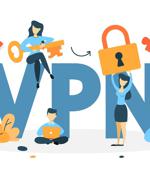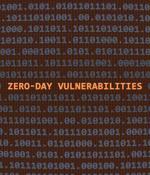Security News

The TunnelBear VPN Free version allows users to enjoy the full TunnelBear VPN service with a monthly data limit of 2GB. In comparison, the paid version provides users with two subscription options: TunnelBear Unlimited and TunnelBear Teams. Visit TunnelBear VPN. TunnelBear VPN paid plans pros and cons.

Hotspot Shield is one of a few VPN providers that offer both free and premium plans. Hotspot Shield has split tunneling in both its Basic and Premium plans, allowing users to access a public network while still being connected to a VPN server.

Suspected Chinese state-sponsored hackers leveraging Ivanti Connect Secure VPN flaws to breach a variety of organizations have demonstrated "a nuanced understanding of the appliance", according to Mandiant incident responders and threat hunters. "While the limited attempts observed to maintain persistence have not been successful to date due to a lack of logic in the malware's code to account for an encryption key mismatch, it further demonstrates the lengths UNC5325 will go to maintain access to priority targets and highlights the importance of ensuring network appliances have the latest updates and patches," Mandiant's specialists noted.

In this article, we take a look at four of the best free VPNs available today. Proton VPN: Best overall free VPN. Visit Proton VPN. Proton VPN has garnered popularity as a top pick for free VPNs, and I see why.

Two zero-day vulnerabilities have been discovered in Ivanti Secure VPN, a popular VPN solution used by organizations worldwide. The chaining of the two vulnerabilities allow any attacker to execute remote code without any authentication and compromise affected systems.

Fortinet has disclosed a new critical security flaw in FortiOS SSL VPN that it said is likely being exploited in the wild. The vulnerability, CVE-2024-21762 (CVSS score: 9.6), allows for the...

Fortinet is warning that a new critical remote code execution vulnerability in FortiOS SSL VPN is potentially being exploited in attacks.For those unable to apply patches, you can mitigate the flaw by disabling SSL VPN on your FortiOS devices.

A recently disclosed server-side request forgery (SSRF) vulnerability impacting Ivanti Connect Secure and Policy Secure products has come under mass exploitation. The Shadowserver...

CISA has ordered U.S. federal agencies to disconnect all Ivanti Connect Secure and Policy Secure VPN appliances vulnerable to multiple actively exploited bugs before Saturday. In response to the "Substantial threat" and significant risk of security breaches posed by compromised Ivanti VPN appliances, CISA now mandates all federal agencies to "Disconnect all instances of Ivanti Connect Secure and Ivanti Policy Secure solution products from agency networks," "As soon as possible" but no later than 11:59 PM on Friday, February 2.

Google-owned Mandiant said it identified new malware employed by a China-nexus espionage threat actor known as UNC5221 and other threat groups during post-exploitation activity targeting Ivanti Connect Secure VPN and Policy Secure devices.This includes custom web shells such as BUSHWALK, CHAINLINE, FRAMESTING, and a variant of LIGHTWIRE.